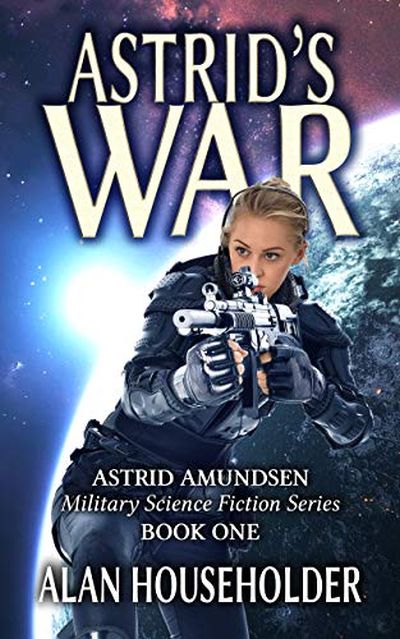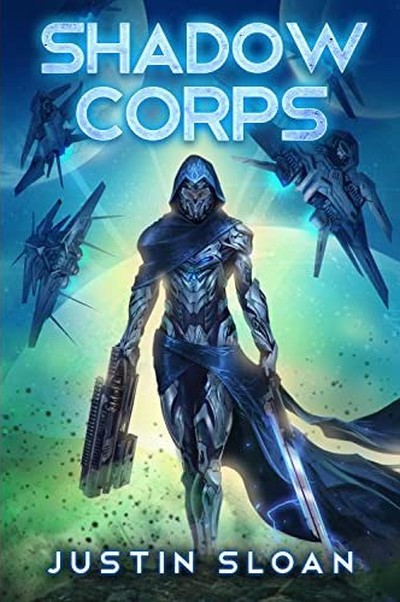Literary rating: ★★★
Kick-butt quotient: ☆☆½
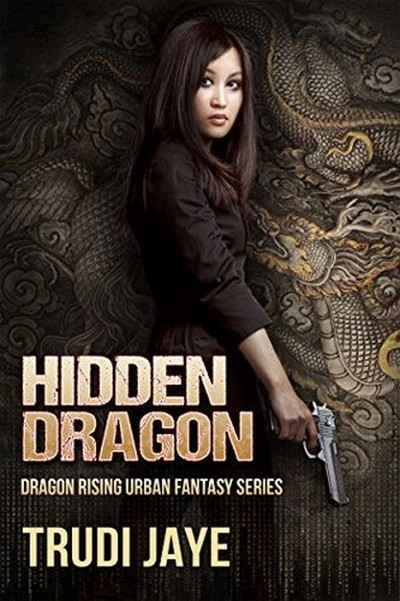 This version of the world is more or less identical to our own. Except, several hundred years ago, there was a catastrophe in which massive dragons rampaged around, with humans being collateral damage. A secret society called the Earthbound managed to end the thread, partly through the invention of the Spell Web – basically, an Internet for magic users. Now, the Earthbound and a secret government organization, the Supernatural Intelligence Group, operate to keep a largely oblivious population in the dark. Though everyone knows dragons are extinct… aren’t they?
This version of the world is more or less identical to our own. Except, several hundred years ago, there was a catastrophe in which massive dragons rampaged around, with humans being collateral damage. A secret society called the Earthbound managed to end the thread, partly through the invention of the Spell Web – basically, an Internet for magic users. Now, the Earthbound and a secret government organization, the Supernatural Intelligence Group, operate to keep a largely oblivious population in the dark. Though everyone knows dragons are extinct… aren’t they?
Well, for whatever reason, someone seems very keen to take out Mei Walker, who has grown up under the protection of the SIG, before she comes into her supernatural powers at age 20, which will be in a few weeks. There have been over 530 assassination attempts made against her in the past 12 years. While the Earthbound and the SIG are supposed to be allies, it’s clear there’s a faction of the former intent on getting their hands on Mei, and using her talents for their own ends. Fortunately, she’s not exactly defenseless. Beyond those magic abilities, allowing her to manipulate the element of water, she has also been brought up to be able to take care of herself. She’s forced on the run with SIG agent Seth, unsure who she can trust – even her long-absent father – or how far up the plot against her goes.
I think my main problem is that Mei is almost entirely in the dark as to why she is so important. She (as well as, by proxy, the reader since it’s all told in the first person) and Seth seem about the only people oblivious to the specifics of her situation. It’s a conceit which seems there solely to generate a sense of mystery – not least because of her being left a mysterious box which is built up as being a serious Macguffin, but contains basically nothing of significance. It feels as if, especially after 500+ attempts on her life, the story would have made more sense for her to be aware of the situation from the beginning, rather than running around blind. By the end, we finally know what’s about to happen, though the book ends before there’s any conclusion as to exactly what that means.
Outside of that (admittedly, fairly major) flaw, this is okay. Mei is pitched at a nice level of ability: competent, without being super-powered, and there’s a lack of significant romance which is pleasant. There is a spell in the middle which edges towards the dreaded urban fantasy love-triangle, before it backs off – at least, for now… Jaye does a decent job of building a world lurking just beneath ours, with the standout scene perhaps being Mei’s retrieval of the box from a pawnbroker, who is also a collector of magical artifacts and… things. But safe to say, I think I prefer my fantasy considerably less shrouded in mystery.
Author: Trudi Jaye
Publisher: Star Media, available through Amazon, both as a paperback and an e-book
1 of 4 in the Dragon Rising series.






 Like “Franklin W. Dixon” and “Carolyn Keene,” “A. W. Hart” is the house pen name assigned by the publisher to all the various authors of individual books in the series of which this novel is the seventh installment. In this case, though, A. W. is actually my Goodreads friend Charles Gramlich (that’s no secret; he’s credited in the “About the Author” note at the book’s end). Although I’d read and liked a couple of his short e-stories previously, I’d never tried any of his long fiction. So, when I saw this novel mentioned in one of his blog posts last year, I was intrigued enough to buy a copy. (Barb and I read it together, since she’s an avid Western fan, and I knew this would be right up her alley.)
Like “Franklin W. Dixon” and “Carolyn Keene,” “A. W. Hart” is the house pen name assigned by the publisher to all the various authors of individual books in the series of which this novel is the seventh installment. In this case, though, A. W. is actually my Goodreads friend Charles Gramlich (that’s no secret; he’s credited in the “About the Author” note at the book’s end). Although I’d read and liked a couple of his short e-stories previously, I’d never tried any of his long fiction. So, when I saw this novel mentioned in one of his blog posts last year, I was intrigued enough to buy a copy. (Barb and I read it together, since she’s an avid Western fan, and I knew this would be right up her alley.)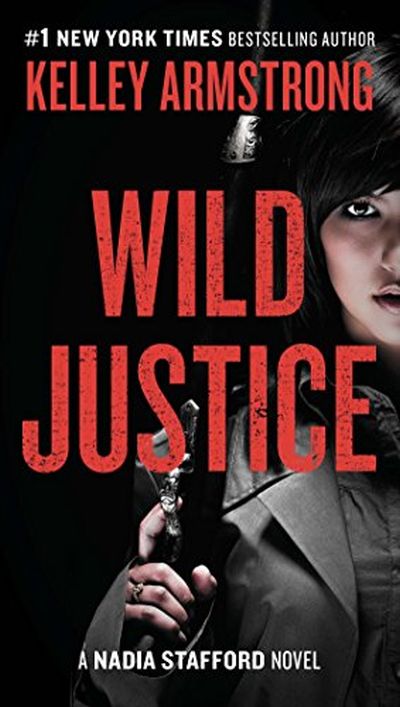 That’s what happened here, about a month ago,with Quinn wanting to move in the direction of engagement and marriage and Nadia not willing to, leading to a messy breakup that left him very hurt and her “feeling like [vulgarism deleted].” :-( On top of that stress, when this book opens, she’s in rural Michigan on a job (of the kind that she doesn’t advertise). That quickly results, though through no fault of her own, in a traumatic event which has her on the point of meltdown. But before long, she’s in for a moral and emotional ordeal which will make her present distresses look relatively mild.
That’s what happened here, about a month ago,with Quinn wanting to move in the direction of engagement and marriage and Nadia not willing to, leading to a messy breakup that left him very hurt and her “feeling like [vulgarism deleted].” :-( On top of that stress, when this book opens, she’s in rural Michigan on a job (of the kind that she doesn’t advertise). That quickly results, though through no fault of her own, in a traumatic event which has her on the point of meltdown. But before long, she’s in for a moral and emotional ordeal which will make her present distresses look relatively mild.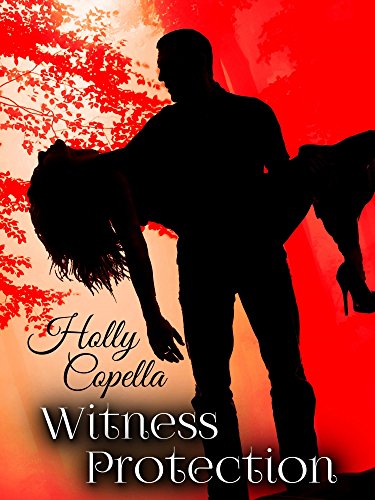 This is one of those books where the cover (right) feels at odds with the synopsis: “After witnessing an execution, a resourceful young woman attempts to disappear while being pursued by a hitman and a handsome federal agent.” Having read the book, the reality sits somewhat uncomfortably in the middle. It might have been better if the author had committed to writing either an action novel or a romance; the combination of them here is awkward and clunky. Naturally, my preference was for the former. But it seems that every time the book got into a rhythm there, the heroine would start lusting after one (frankly, close to all) of the male characters, and the energy would be derailed.
This is one of those books where the cover (right) feels at odds with the synopsis: “After witnessing an execution, a resourceful young woman attempts to disappear while being pursued by a hitman and a handsome federal agent.” Having read the book, the reality sits somewhat uncomfortably in the middle. It might have been better if the author had committed to writing either an action novel or a romance; the combination of them here is awkward and clunky. Naturally, my preference was for the former. But it seems that every time the book got into a rhythm there, the heroine would start lusting after one (frankly, close to all) of the male characters, and the energy would be derailed.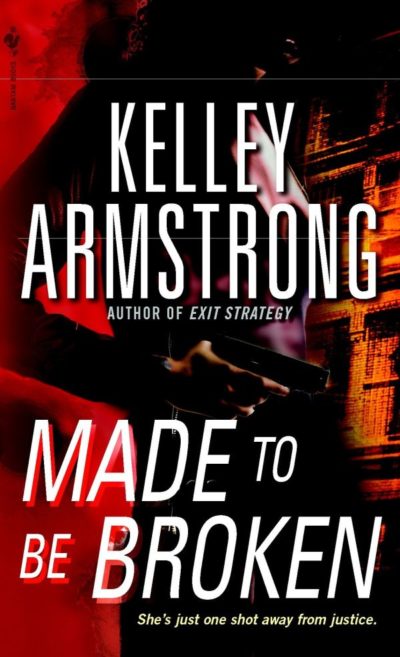 Even with her off-the-books side income, Nadia can’t afford to pay more than a tiny staff at her guest lodge; but out of kindness, she’s given a job as assistant housekeeper to a 17-year-old girl from the nearby small town of White Rock, Sammi Ernst. Sammi’s foul-mouthed, barely literate, and has a chip on her shoulder; the latter isn’t surprising, given her life situation. She’s the out-of-wedlock daughter of Janie Ernst. Both women are widely looked down on in the community –Janie because she’s a drunken, mean-tempered, self-centered deadbeat, and Sammi mainly because she has Janie for an (abusive) mother. Also a single mom herself, Sammi’s not promiscuous like Janie (she had a single affair, with a visiting rich college kid who wasn’t interested in marriage or fatherhood, and left her to bear his unacknowledged daughter alone); and also unlike her own mom, she genuinely loves baby Destiny, and wants to work to support her, rather than making a dead-end career out of welfare dependency as Janie has.
Even with her off-the-books side income, Nadia can’t afford to pay more than a tiny staff at her guest lodge; but out of kindness, she’s given a job as assistant housekeeper to a 17-year-old girl from the nearby small town of White Rock, Sammi Ernst. Sammi’s foul-mouthed, barely literate, and has a chip on her shoulder; the latter isn’t surprising, given her life situation. She’s the out-of-wedlock daughter of Janie Ernst. Both women are widely looked down on in the community –Janie because she’s a drunken, mean-tempered, self-centered deadbeat, and Sammi mainly because she has Janie for an (abusive) mother. Also a single mom herself, Sammi’s not promiscuous like Janie (she had a single affair, with a visiting rich college kid who wasn’t interested in marriage or fatherhood, and left her to bear his unacknowledged daughter alone); and also unlike her own mom, she genuinely loves baby Destiny, and wants to work to support her, rather than making a dead-end career out of welfare dependency as Janie has.
 Bea is living a quiet life, far out in the Wyoming countryside, with her husband Justin and young son, Bear. However, this isolation is an entirely deliberate choice in order to escape from her past. For in her previous life, she was Phoenix Romano, an enforcer and hit-woman for her mob boss father. After deciding she’d had enough of that life, she liberated several millions of his money, and vanished, hoping never to be found again. Naturally, things don’t quite work out like that. Justin and Bear are killed in a car crash, but Phoenix has reason to suspect it wasn’t an accident, and that instead her past life is catching up with her. But why did whoever was responsible for that go after her family, and leave her alive?
Bea is living a quiet life, far out in the Wyoming countryside, with her husband Justin and young son, Bear. However, this isolation is an entirely deliberate choice in order to escape from her past. For in her previous life, she was Phoenix Romano, an enforcer and hit-woman for her mob boss father. After deciding she’d had enough of that life, she liberated several millions of his money, and vanished, hoping never to be found again. Naturally, things don’t quite work out like that. Justin and Bear are killed in a car crash, but Phoenix has reason to suspect it wasn’t an accident, and that instead her past life is catching up with her. But why did whoever was responsible for that go after her family, and leave her alive?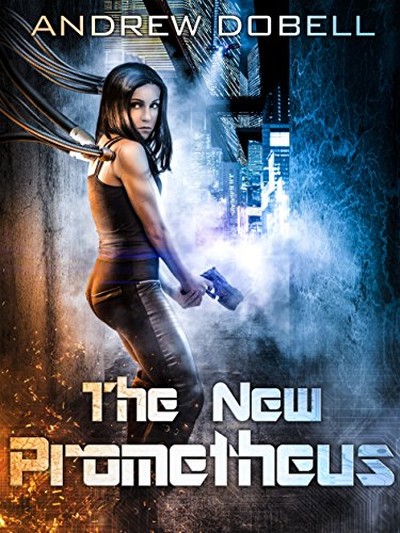 The setting is a dystopian version of London, which has become separated into two distinct halves, and classes of residents. It’s a world in which cybernetic enhancements are common. But they come at the cost of a debt – sometimes, virtual enslavement – to the powerful corporations who supply and maintain them. Frankie has resisted these, preferring to retain her humanity, and journeys into the dangerous undercity, to help those less fortunate. But on one such trip, she’s shot and left for dead. Rescued by the renegade Doctor Xenox, she wakes to find herself in a new, artificial and highly-powered body. She’s not too happy about it. Things get worse, for the doctor’s erstwhile corporate employers, Psytech, consider Frankie v2.0 as their property, and will stop at nothing to get her under control. As a result, with the help of the Doctor, and cop Gibson, she has to fend off the assembled forces of Psytech.
The setting is a dystopian version of London, which has become separated into two distinct halves, and classes of residents. It’s a world in which cybernetic enhancements are common. But they come at the cost of a debt – sometimes, virtual enslavement – to the powerful corporations who supply and maintain them. Frankie has resisted these, preferring to retain her humanity, and journeys into the dangerous undercity, to help those less fortunate. But on one such trip, she’s shot and left for dead. Rescued by the renegade Doctor Xenox, she wakes to find herself in a new, artificial and highly-powered body. She’s not too happy about it. Things get worse, for the doctor’s erstwhile corporate employers, Psytech, consider Frankie v2.0 as their property, and will stop at nothing to get her under control. As a result, with the help of the Doctor, and cop Gibson, she has to fend off the assembled forces of Psytech.